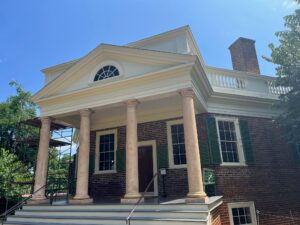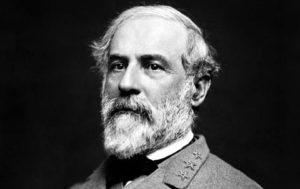LYNCHBURG, Va. — We came to visit Thomas Jefferson’s “getaway” house, but found a remarkable benefit for Toby the Puppy, the kind of thing I never had seen … until today.
The exhibit is called Poplar Forest, which are the grounds containing home built in 1806 by the nation’s third president. Jefferson used the place as a haven for him to collect his thoughts and to regenerate while tending to matters of statecraft while trying to improve on the still-young nation he helped create.
My friends and I pulled into the parking area, then glanced a large kennel-like structure with a doggie profile and a doggie bone on its side. We wondered, “Is that a place where we could take Toby while we walked through the Poplar Forest exhibit?”
We went to the office/gift shop and, sure enough, that is precisely what it is. The young women said we could put Toby the Puppy in there at no charge; he would have water collected in a rain barrel next to the kennel. He could relax in the shade while Daddy and his friends traipsed through the exhibit.
I know this isn’t a big deal for many folks. Except that it was 90-plus degrees, and we didn’t want to leave Toby the Puppy in a hot car, given that pets are not allowed in the buildings.
It’s the little things, the unexpected perks one sees and receives, that make certain historical exhibits even more enjoyable.


